How to remove M.Onlinesearches.link? M.Onlinesearches.link is a browser hijacker. M.Onlinesearches.link browser hijacker modifies settings in the web browser. M.Onlinesearches.link redirects the default search engine and hijacks the new tab homepage.
M.Onlinesearches.link is regularly offered on the internet as a convenient homepage. However, this is a browser hijacker that collects all kinds of data from your browser.
Browser hijackers are malicious programs that can be installed on your computer without your knowledge or consent. They can redirect your browser to unwanted websites, change your homepage and search engine settings, and collect your data. Browser hijackers can also slow down your computer, and in some cases, they can even install malware and spyware on your computer. This can open your computer to further attacks from other malicious programs, making it difficult to browse the internet safely. It’s important to understand what browser hijackers are and how to protect yourself from them.
A browser hijacker is a malicious program that attempts to change your internet browser to M.Onlinesearches.link and redirect you to different websites. Two of the most common types of browser hijackers are adware and malware.
M.Onlinesearches.link adware
Adware is software that displays advertisements on your computer, usually through your internet browser. These advertisements can be for legitimate products, but they can also be for scammy products or services or even products you might need but don’t want. Adware can also collect information about you, such as your browsing history and search terms, as well as your IP address and location data.
M.Onlinesearches.link browser hijacker
A browser hijacker is a type of adware that does more than just display advertisements on your computer. A browser hijacker can also change your browser settings and redirect you to different websites than you were trying to go to. Some browser hijackers can also collect information about you and send it to other websites.
OnlineSearches malware
Malware is software that is designed to disrupt your computer’s normal operation or collect information from you without your knowledge or consent. Browser hijackers are types of malware that can hijack your browser and redirect you to websites that trick you into buying something or downloading something you don’t want. Some types of malware can also gather information about you, like your browsing history, IP address, location, and other sensitive information.
How does it work?
Browser hijackers are usually installed when you click on an infected link online or download an app from an unknown source. These malicious programs are often bundled with other software and apps, making it difficult to know if you’re installing one on your computer. Browser hijackers can also be installed when you click on a link in an email, even if the link isn’t clickable, because malicious software can manipulate your email client to make links look like normal text.
Browser hijackers such as M.Onlinesearches.link often take advantage of the fact that many internet users are unaware of how their internet browser works or that it even has settings that can be changed. One way that browser hijackers can work is by changing your browser’s settings so that your homepage and default search engine are different than what you originally set them to be. They can also change your browser’s default settings so that pop-up windows are enabled, and your homepage is reset every time you close your browser.
If your home page has changed to M.Onlinesearches.link and the OnlineSearches browser extension has been installed, remove the OnlineSearches extension as soon as possible using this OnlineSearches removal instruction.
Remove M.Onlinesearches.link
If you’ve already have the M.Onlinesearches.link browser hijacker installed on your computer, you can follow these steps to remove it permanently.
First, you should check to see if any malicious programs are running on your computer. You can do this by running a computer scan using an antivirus and anti-malware program such as Malwarebytes, and then following the instructions to remove any malicious programs.
Once you’ve completed these steps, you should reset your internet browser’s settings to the way they were before you had the browser hijacker installed. But how do you know what those settings were exactly? That’s where browser hijacker detection tools come in. Browser hijacker detection tools can detect if you’re currently infected with a browser hijacker, as well as what browser hijacker you have, so you can take the appropriate steps to remove it.
Browser hijacker detection tools aren’t only helpful for detecting and removing browser hijackers that are currently installed on your computer. They can also help you stay protected against future infection by alerting you when they detect a browser hijacker that might be trying to install on your computer.
If you’ve have a browser hijacker installed on your computer, you might notice that your browser has been reset to a different homepage and default search engine than what you originally had. It’s also possible that your homepage and default search engine have been changed without you realizing it. You can also use browser hijacker detection tools to determine if you have a browser hijacker installed on your computer. These tools will alert you if they detect a browser hijacker, as well as what type of hijacker it is and where it might be located on your computer.
Google chrome
Open Google Chrome and type chrome://extensions in the Chrome address bar.

Scroll through all installed Chrome extensions and find the “OnlineSearches” extension.
When you have found the OnlineSearches browser extension, click on Remove.
If the extension is managed by your organization, download chrome policy remover.
Unzip the file, right-click the .bat, and run as administrator.
Instructions for Mac OS X at the end of this instruction.
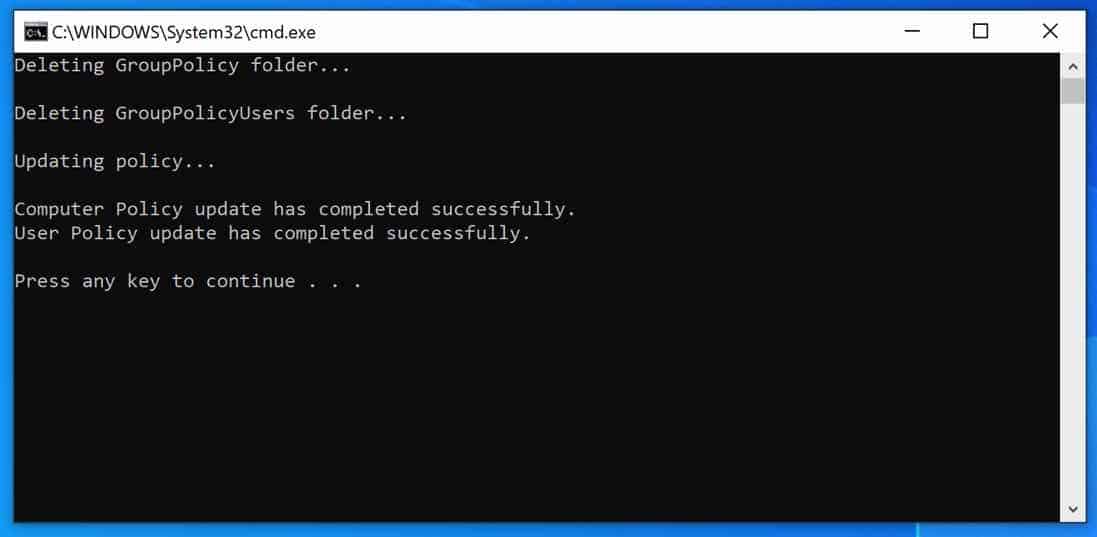
If you still have problems with the Google Chrome web browser, consider a complete reset of the Chrome web browser.
In the Google Chrome address bar type, or copy and paste: chrome://settings/resetProfileSettings
Click the Reset Settings button to reset Google Chrome to the default settings fully. When you are done, restart the Chrome browser.
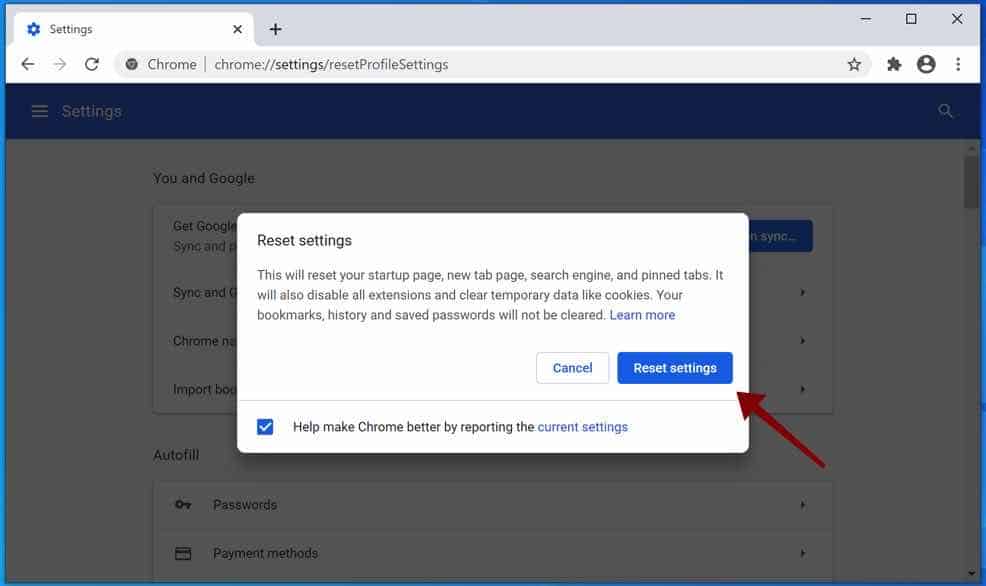
Continue to the next step, remove malware from your computer with Malwarebytes.
Open Firefox and, type about:addons in the Firefox address bar, press ENTER on your keyboard.
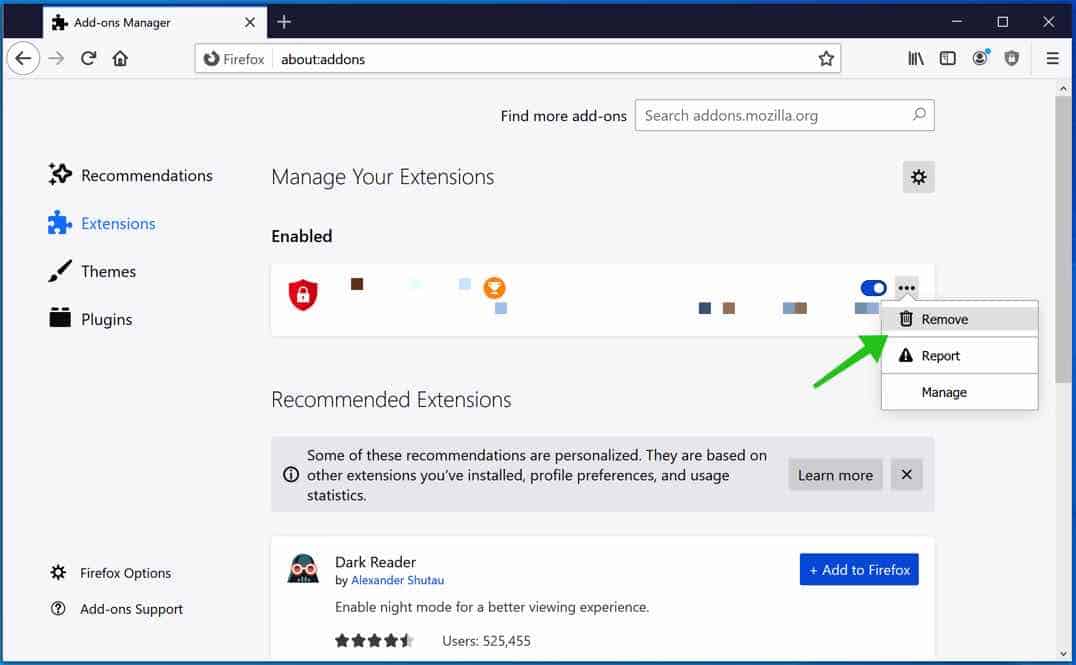
Find the “OnlineSearches” browser extension and click the three dots on the right of the OnlineSearches extension.
Click on Remove from the menu to remove OnlineSearches from the Firefox browser.
If you still have problems with the Firefox web browser, consider a complete reset of the Firefox web browser.
In the Firefox address bar type, or copy and paste: about:support
Click the Refresh Firefox button to reset Firefox to the default settings fully. When you are done, restart the Firefox browser.
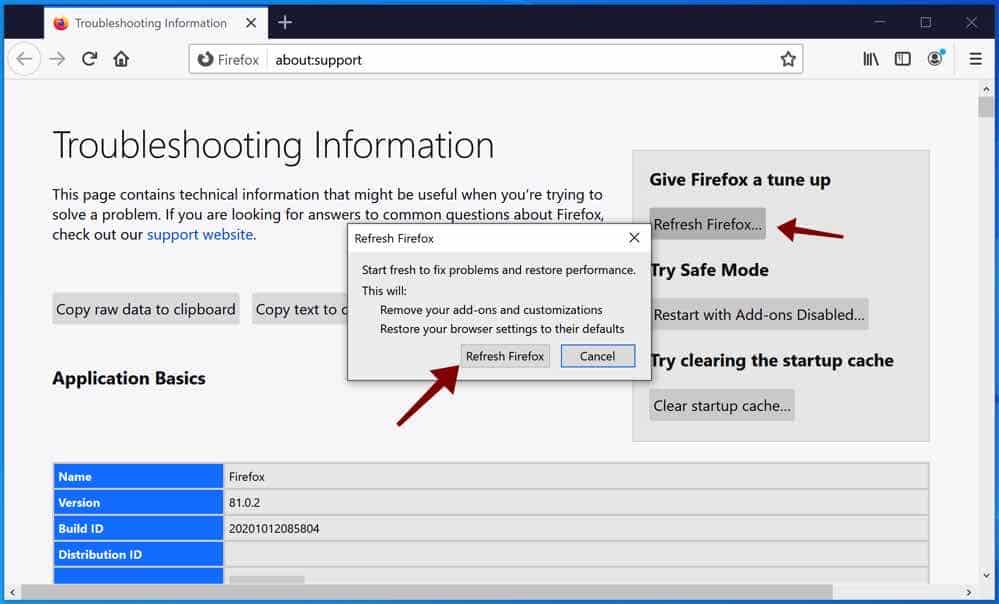
Continue to the next step, remove malware from your computer with Malwarebytes.
Open Microsoft Edge. In the address bar type: edge://extensions/
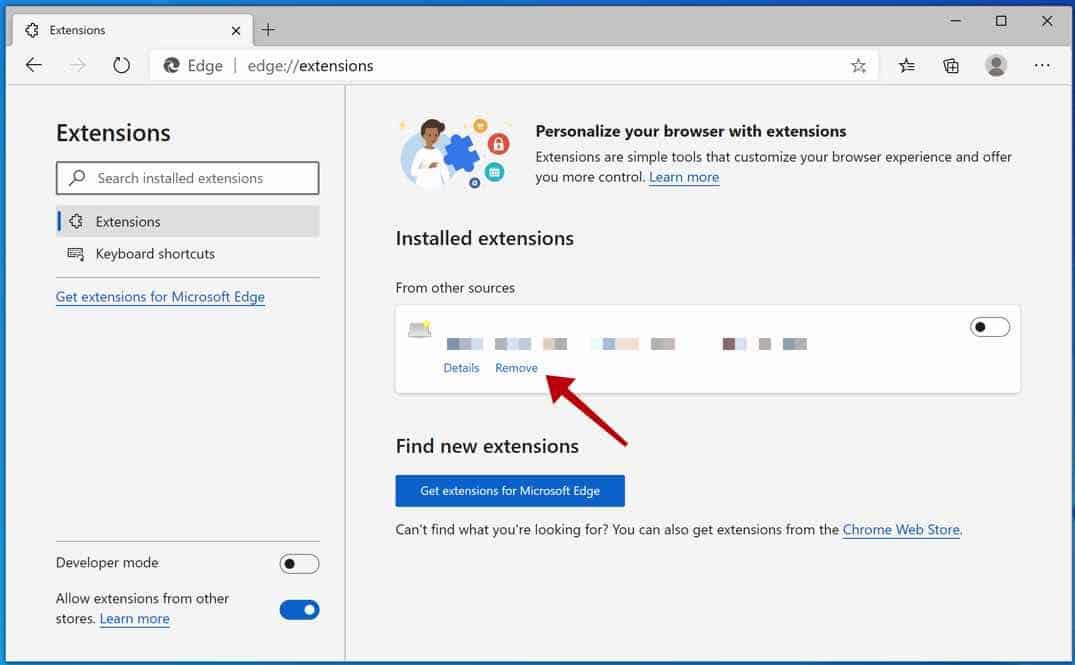
Find the “OnlineSearches” extension and click on Remove.
Consider a full reset if you still have problems with the Microsoft Edge web browser.
In the Microsoft Edge address bar type, or copy and paste: edge://settings/resetProfileSettings
Click the Refresh button to reset Edge to the default settings fully. When you are done, restart the Microsoft Edge browser.
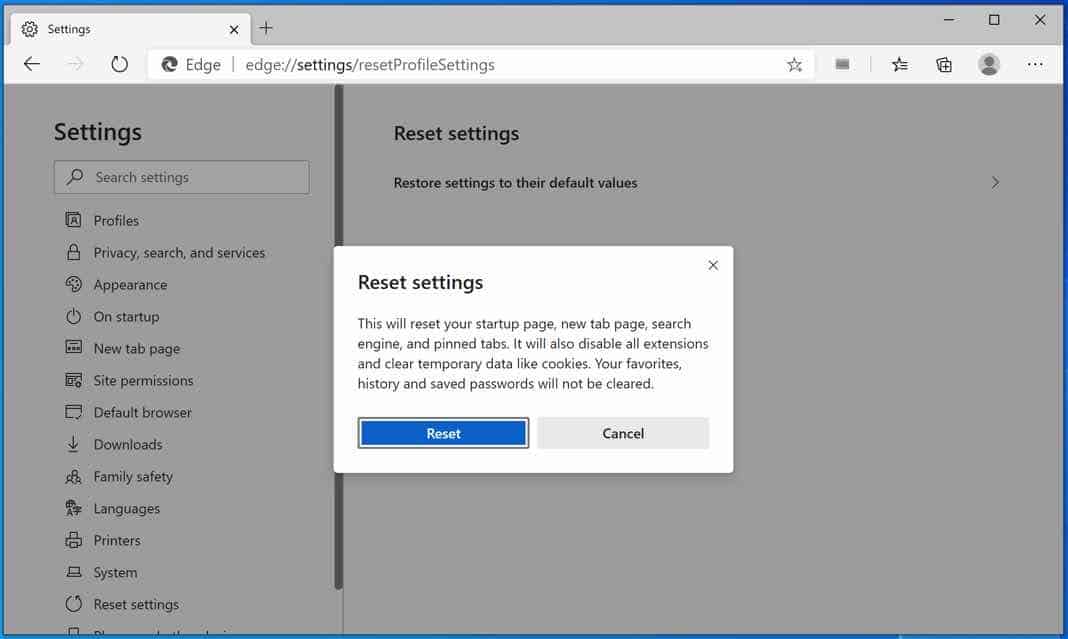
Continue to the next step, remove malware from your computer with Malwarebytes.
Open Safari. In the top left corner, click on the Safari menu.
In the Safari menu, click on Preferences. Click on the Extensions tab.
Click on the OnlineSearches extension you would like to remove, then click on Uninstall.
Next, remove malware with Malwarebytes for Mac.
Read more: Remove Mac malware with Anti-malware or Remove mac malware manually.
Remove OnlineSearches with Malwarebytes
Make sure to clean your computer from adware with Malwarebytes thoroughly. Malwarebytes is an essential tool in the fight against malware. Malwarebytes can remove many types of malware that other software does often miss. Malwarebytes is costing you absolutely nothing. When cleaning up an infected computer, Malwarebytes has always been free, and I recommend it as an essential tool in the battle against malware.
Install Malwarebytes, and follow the on-screen instructions. Click Scan to start a malware scan.
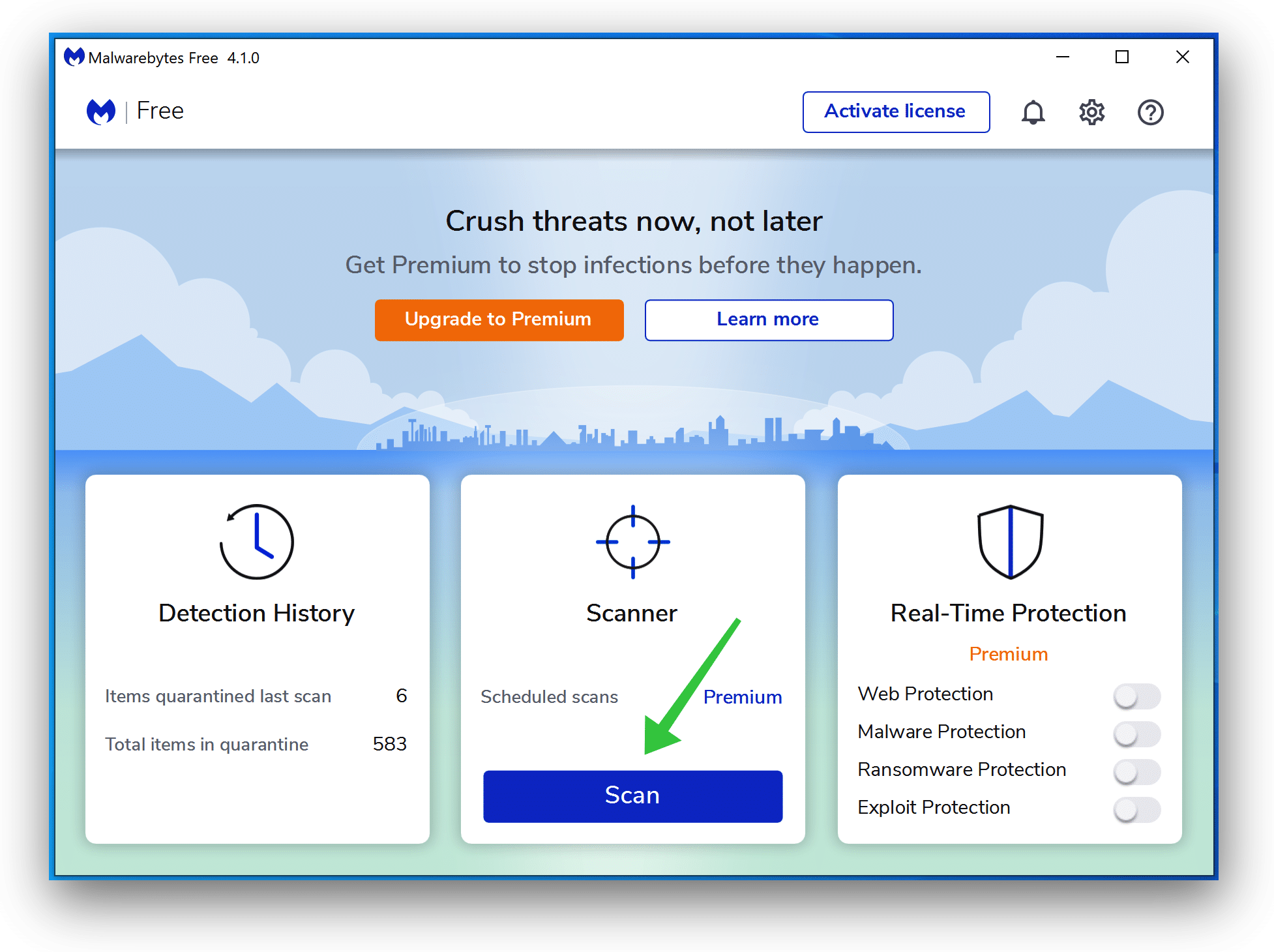
Wait for the Malwarebytes scan to finish. Once completed, review the OnlineSearches adware detections.
Click Quarantine to continue.
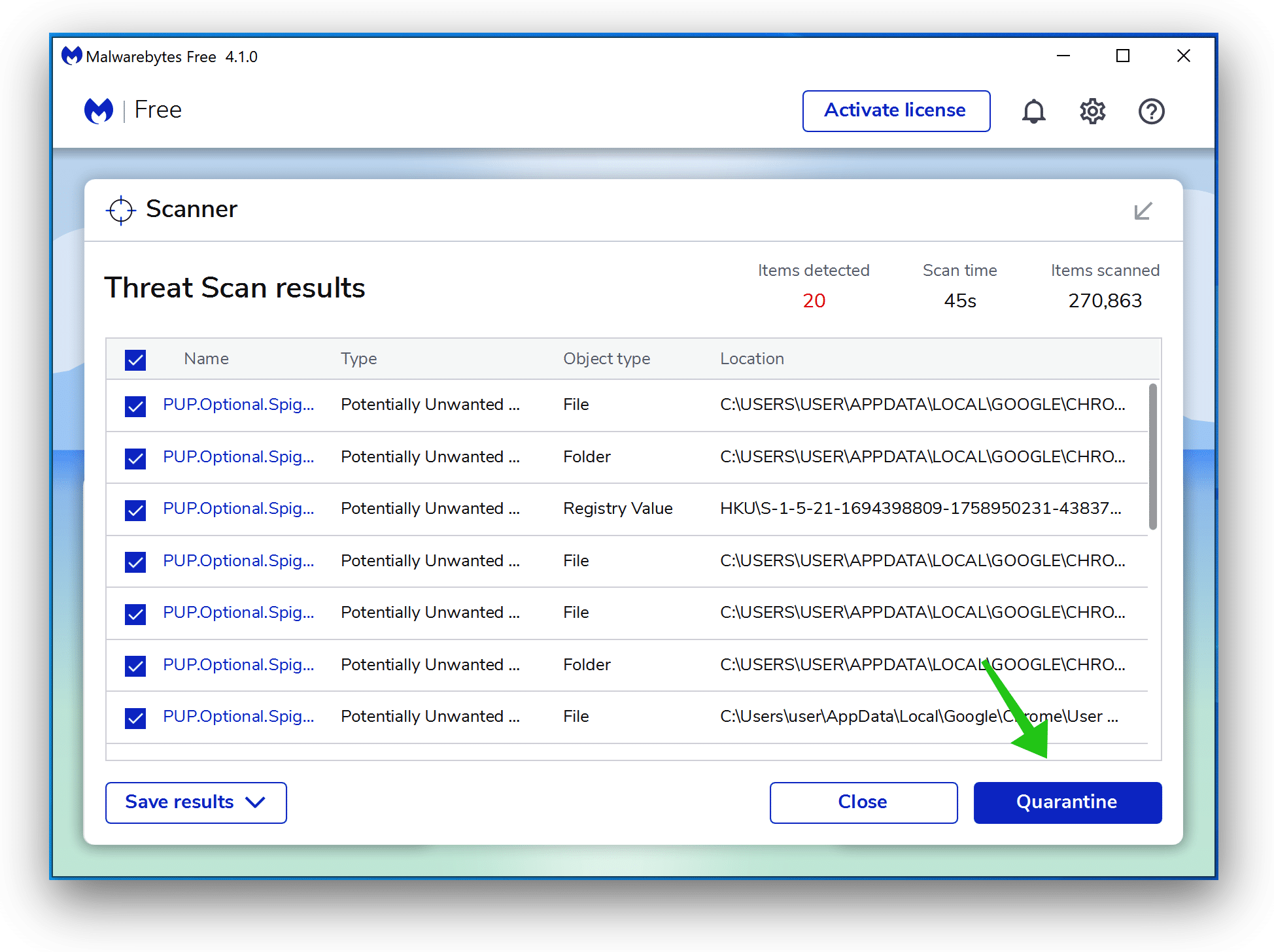
Reboot Windows after all the adware detections are moved to quarantine.
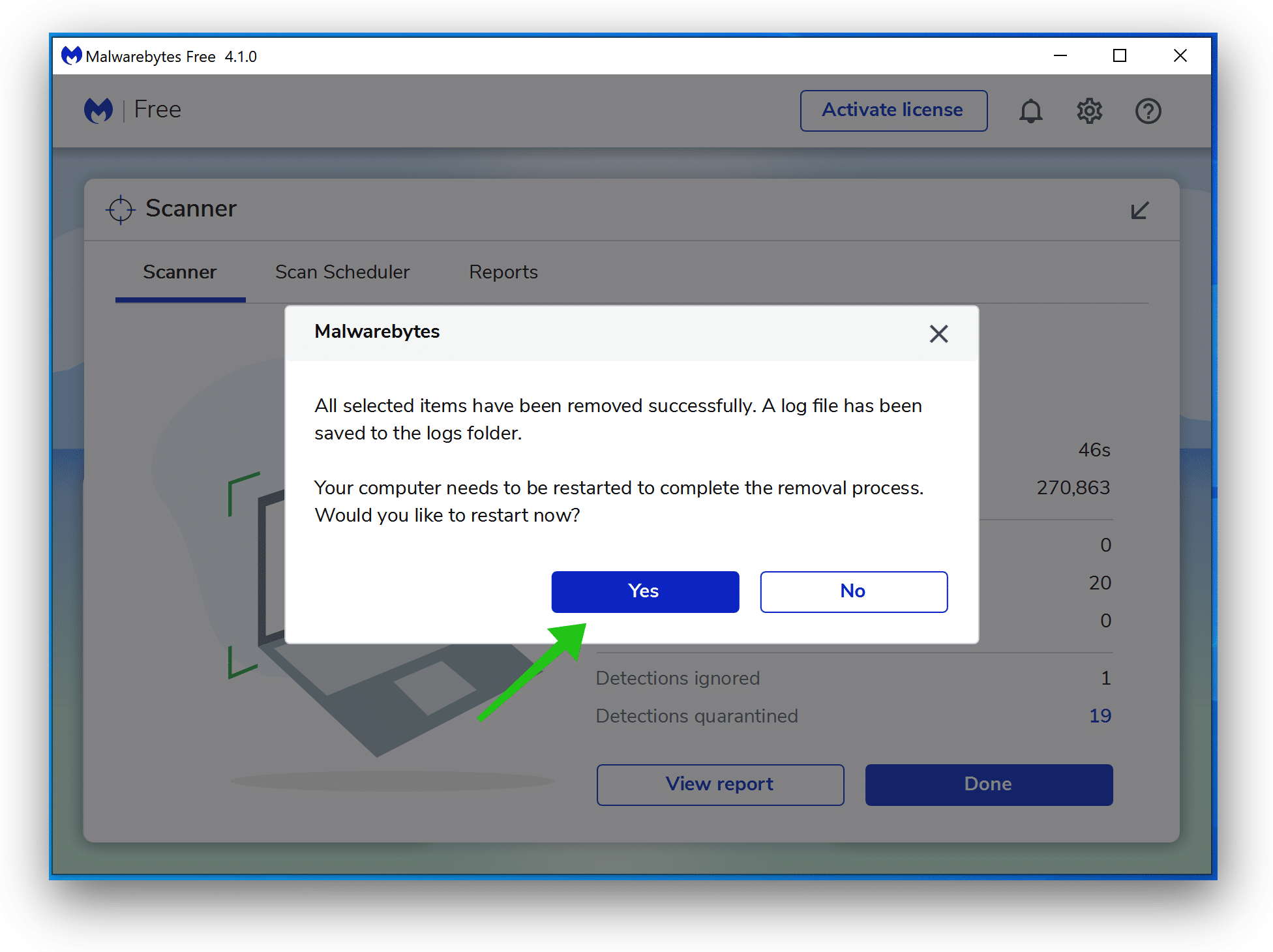
Continue to the next step to remove unwanted programs and malware
Remove malware with Sophos HitmanPRO
In this malware removal step, we will start a second scan to ensure no malware remnants are left on your computer. HitmanPRO is a cloud scanner that scans every active file for malicious activity on your computer and sends it to the Sophos cloud for detection. In the Sophos cloud, both Bitdefender antivirus and Kaspersky antivirus scan the file for malicious activities.
When you have downloaded HitmanPRO install the HitmanPro 32-bit or HitmanPRO x64. Downloads are saved to the Downloads folder on your computer.
Open HitmanPRO to start installation and scan.
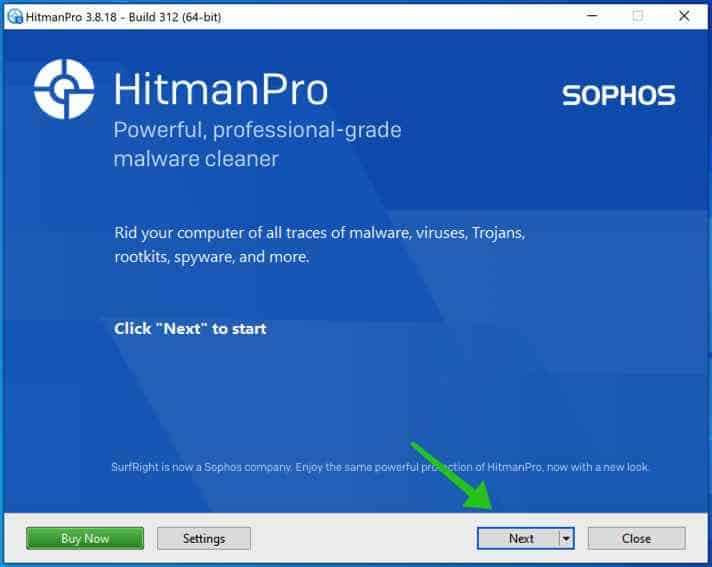
Accept the Sophos HitmanPRO license agreement to continue. Read the license agreement, check the box, and click on Next.
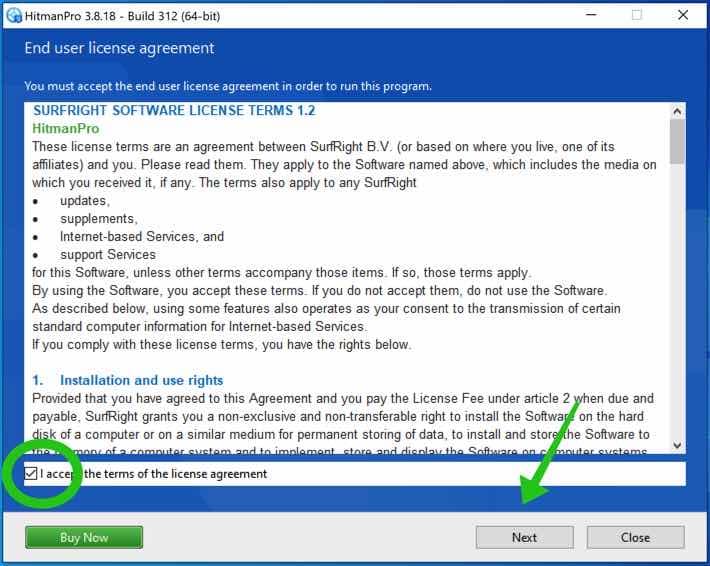
Click the Next button to continue Sophos HitmanPRO installation. Make sure to create a copy of HitmanPRO for regular scans.
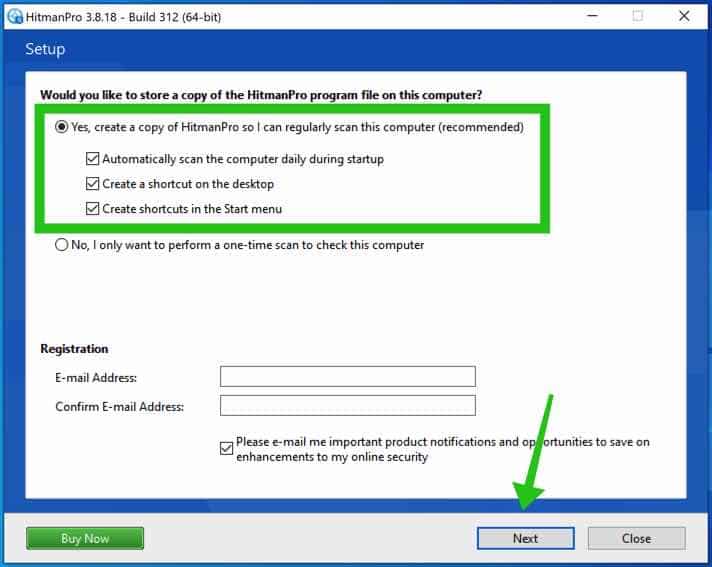
HitmanPRO begins with a scan. Wait for the antivirus scan results.
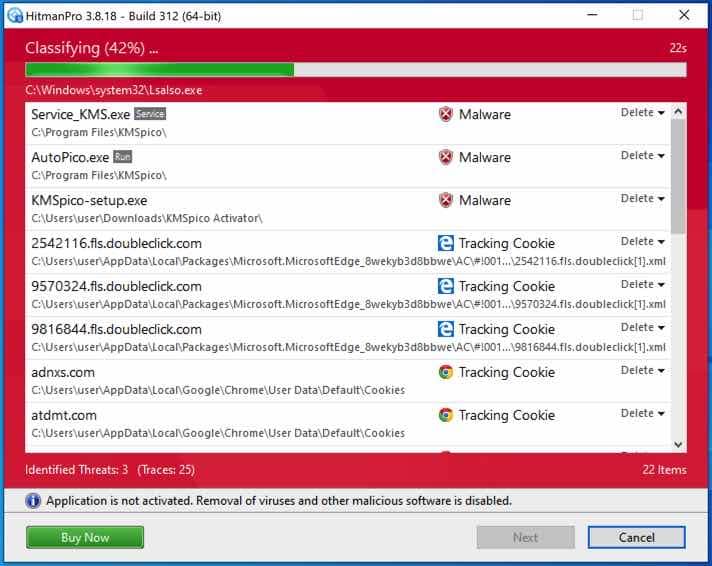
When the scan is done, click Next and activate the free HitmanPRO license. Click on Activate Free license.
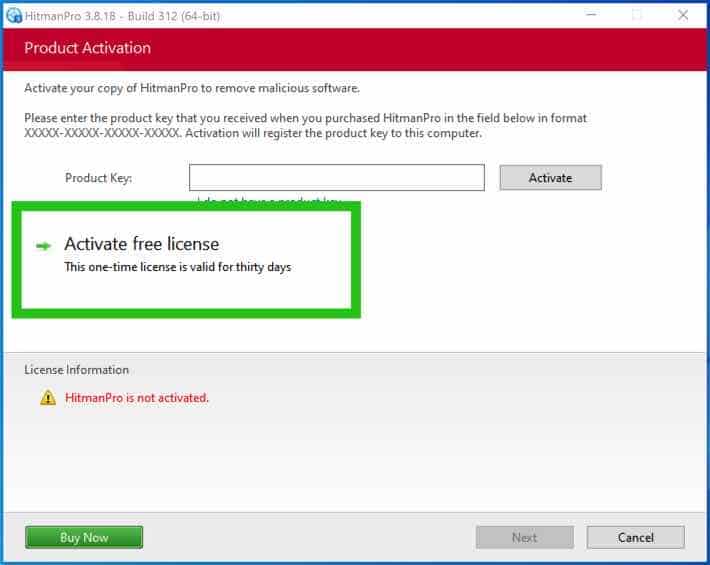
Enter your e-mail for a Sophos HitmanPRO free thirty days license. Click on Activate.
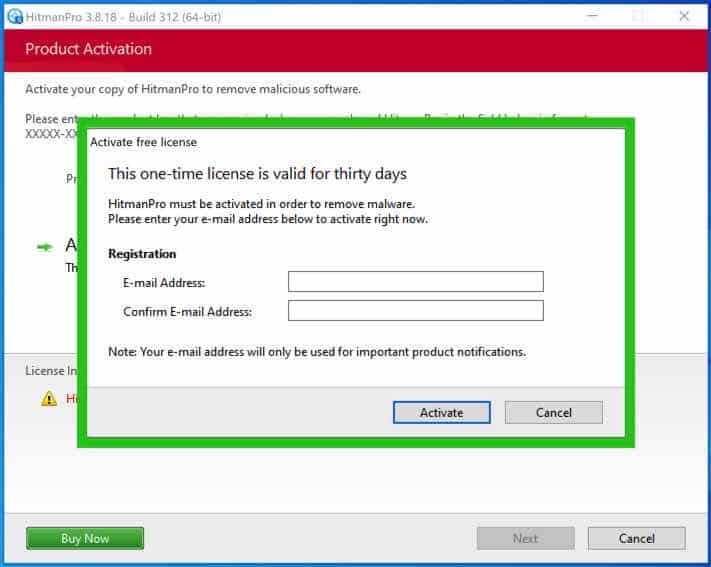
The free HitmanPRO license is successfully activated.
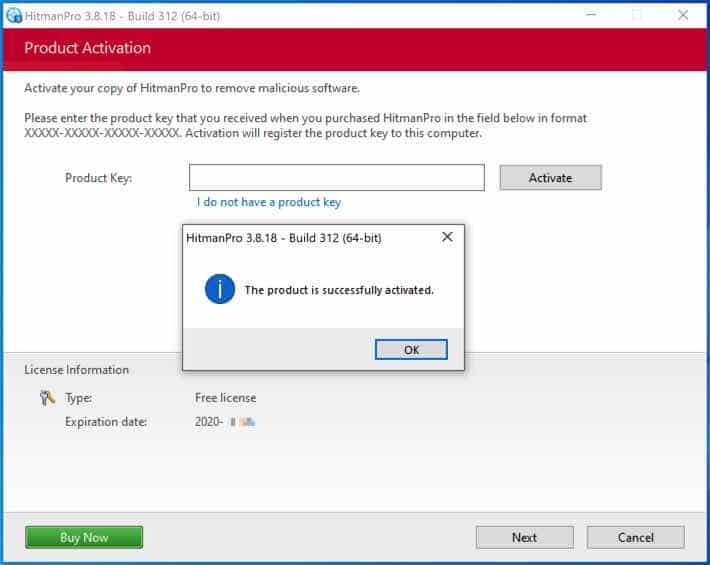
You’ll be presented with the malware removal results, click Next to continue.
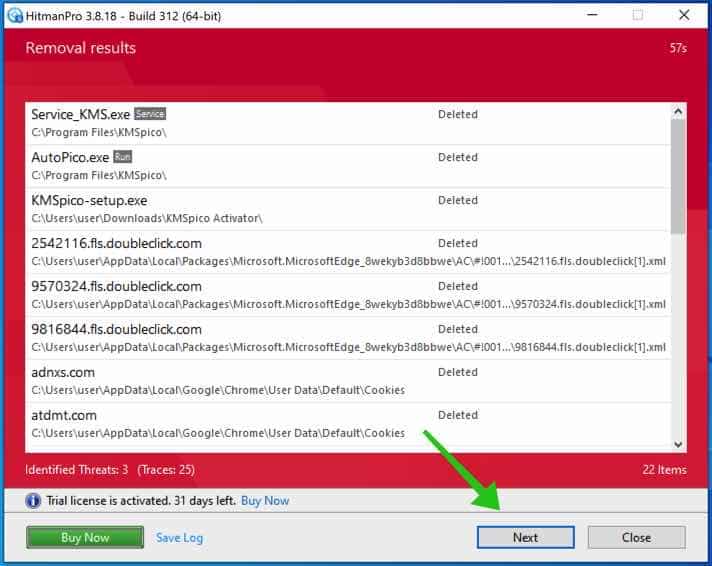
Malicious software was partially removed from your computer. Restart your computer to complete the removal.
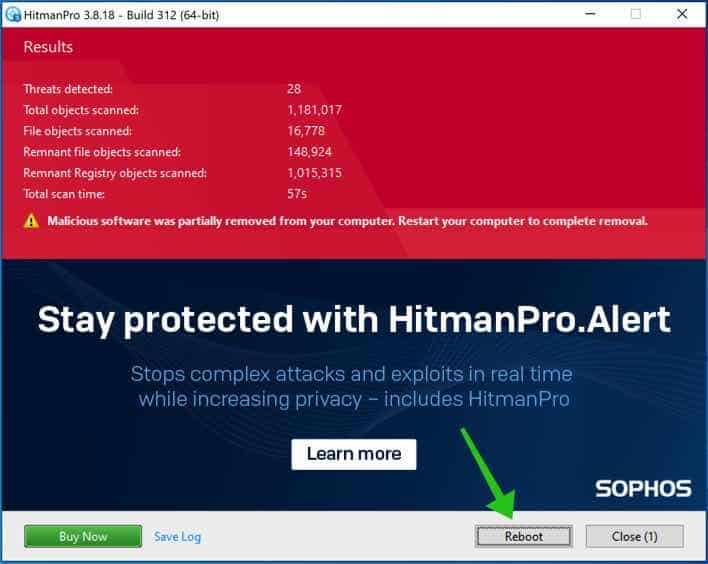
Bookmark this page before you reboot your computer.
How to avoid M.Onlinesearches.link?
Browser hijackers try to trick you into clicking on their ads, so the best way to avoid them is to never click on advertisements online. If you’re clicking on an advertisement, even if you think you know what website it’s leading to, always check the URL in your browser’s address bar before clicking on it. Another way to avoid browser hijackers is by only installing programs from trusted sources.
Be careful with links you click and check any email links before clicking on them. You should also regularly update your software, including your internet browser and antivirus and anti-malware programs, so that you have the latest security patches protecting you from malicious programs like browser hijackers.
I hope this helped. Thank you for reading!